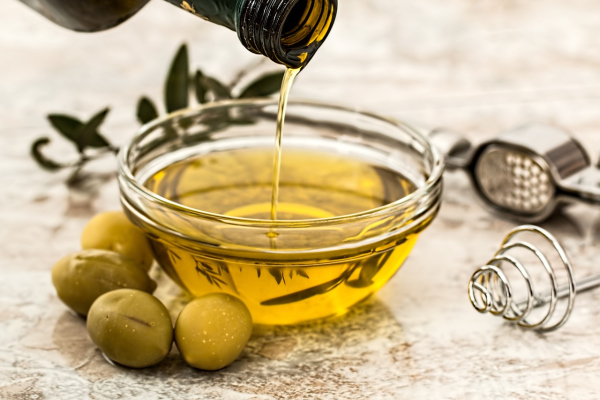 |
The Finest Harvest in Every Bottle:PDO/DOP Certified Extra Virgin Olive Oils |
 |
The Finest Harvest in Every Bottle:PDO/DOP Certified Extra Virgin Olive Oils |

The Shelf Life of Extra Virgin Olive Oil: How to Maximize FreshnessUnderstanding Shelf LifeThe shelf life of extra virgin olive oil (EVOO) depends on various factors, including production methods, storage conditions, and packaging. Generally, EVOO can last 18-24 months from the harvest date. However, once opened, it is best to use the oil within 3-6 months for optimal flavor and nutritional benefits. Proper storage can significantly extend the shelf life and maintain the quality of the oil. Storage ConditionsStore EVOO in a cool, dark place away from heat and light. Proper storage helps maintain its quality and extend its shelf life. Avoid storing EVOO near the stove or in direct sunlight, as heat and light can accelerate the oxidation process and degrade the oil. The ideal storage temperature for EVOO is between 57°F and 70°F (14°C and 21°C). Packaging MattersDark glass bottles or stainless steel containers are ideal for storing EVOO. These materials protect the oil from light exposure, which can degrade its quality over time. Avoid using clear glass or plastic containers, as they do not offer the same level of protection. Ensure that the container is airtight to prevent exposure to air, which can also lead to oxidation. Signs of SpoilageRancid EVOO will have a musty, sour smell and taste. If your oil has these characteristics, it is no longer fresh and should be discarded. Other signs of spoilage include a greasy texture, dark or cloudy appearance, and a lack of the vibrant, fruity aroma typical of fresh EVOO. Using spoiled EVOO can negatively affect the flavor of your dishes and may not provide the same health benefits. Expert TipsOlive oil producer John Carmichael advises, "Proper storage is crucial to maintaining the quality and flavor of extra virgin olive oil. Always check the harvest date and use the oil within the recommended time frame. Store the oil in a cool, dark place and use dark glass bottles or stainless steel containers to protect it from light." Common Mistakes to AvoidHere are some common mistakes to avoid when storing EVOO:
RefrigerationRefrigerating EVOO can help extend its shelf life, especially in warmer climates. While refrigeration may cause the oil to become cloudy and solidify, this does not affect its quality. Simply allow the oil to return to room temperature before using it. For long-term storage, refrigeration can be a good option, but for everyday use, storing the oil in a cool, dark pantry is sufficient. For a comprehensive guide on choosing EVOO, see our Buyer’s Guide. Learn about the health benefits in Health Benefits of Extra Virgin Olive Oil and discover the best recipes using EVOO in The Best Recipes Using Extra Virgin Olive Oil. |
Disclaimer: Some articles on this site mention various health benefits of extra virgin olive oils. Some of the benefits have been researched and some are from individual's personal experiences. In any case, these articles are not intended to act as a medical reference. If you are using, or are considering using olive oil for specific health related issues, you are advised to speak with your health care provider for advice pertaining to your situation. These articles are for educational purposes only.